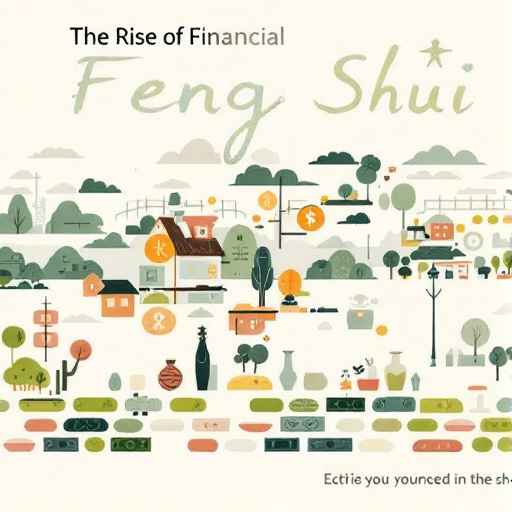Featured Articles
- Cryptocurrency and Climate Change: The Unseen Impact of Your Investments on the Planet's Future
- Cryptocurrency Gifting: The New Age of Financial Advice or Just a Tax Time Bomb?
- Cryptocurrency Gifting: The New Trend for Wealth Transfer in Millennial Families
- Cryptocurrency Therapy: How Mental Health Influences Financial Decision-Making in the Digital Age
- How Sleep Patterns Secretly Shape Your Spending Habits and Financial Decisions in Unexpected Ways
Cryptocurrency Therapy: How Mental Health Influences Financial Decision-Making in the Digital Age
Cryptocurrency Therapy: How Mental Health Influences Financial Decision-Making in the Digital Age
In today's digital age, the intersection of mental health and financial decision-making—especially concerning cryptocurrency—has become a crucial conversation. This article explores how our psychological well-being influences our financial choices and the ripple effects it creates in the volatile world of cryptocurrencies.
Understanding Cryptocurrency: The New Frontier
Cryptocurrency, a term that once sounded futuristic and exclusive, is now part of our everyday lexicon. With its rapid rise—from Bitcoin's inception in 2009 to the burgeoning array of altcoins—it's become clear that this digital revolution is here to stay. However, while the algorithms governing these currencies are mathematically sound, the human mind navigating this digital landscape is anything but predictable.
The Emotional Rollercoaster of Cryptocurrency Investing
Investing in cryptocurrencies can induce feelings akin to riding a rollercoaster. A survey conducted by Coinbase in 2022 found that a staggering 64% of cryptocurrency investors reported experiencing heightened stress due to price volatility (Coinbase, 2022). Many feel exhilarated when prices surge but despondent when they plummet, leading to an emotional whirlwind that can cloud judgment.
Case Study: The 2020 Bitcoin Surge
Consider the case of Rachel, a 29-year-old graphic designer, who saw her Bitcoin investment skyrocket during the second half of 2020. Eager to ride the wave, she invested more, only to watch her portfolio lose half its value shortly afterward. Rachel epitomizes the “fear of missing out” (FOMO) mentality, which psychology highlights as a significant factor in impulsive financial decision-making.
Mental Health Impact on Financial Decisions
The relationship between mental health and financial decision-making can be likened to a dance—sometimes synchronized, sometimes chaotic. Research indicates that anxiety and depression can lead to poor financial choices, such as spending sprees or irrational investments. According to a study from the American Psychological Association, individuals battling anxiety are 22% more likely to make impulsive financial decisions (APA, 2021).
Cognitive Bias: The Cryptocurrency Trap
One of the biggest culprits in financial misjudgment is cognitive bias. The halo effect, for example, can make certain investments seem more appealing based on unrelated positive characteristics. In the realm of cryptocurrency, this can translate to excitement or trust towards a coin simply because of a persuasive marketing campaign or celebrity endorsement, rather than its intrinsic value.
The Power of Community and Social Media
Communities surrounding cryptocurrencies, particularly on platforms like Reddit and Twitter, can be a double-edged sword. These online groups can offer support and share valuable knowledge or breed misinformation and panic. For someone struggling with mental health, these communities can either provide a sense of belonging or contribute to feelings of inadequacy, depending on the tenor of the conversation.
Humor in the Hectic World of Crypto
To lighten the mood—let's face it, the crypto world can often feel like a chaotic circus—have you ever seen a crypto investor at a 50% plunge? It’s like watching someone take their first rollercoaster ride but realizing it’s a haunted house instead. Balancing humor with the seriousness of financial choices is crucial, as laughter can mitigate stress and open up discussions about mental health.
Creating Healthy Financial Habits
As a financial educator and an advocate for mental wellness, I often reflect on how we can establish healthier habits around cryptocurrency investment. Setting boundaries, such as limiting the amount of time spent on market analysis or engaging with social media commentary, can help in cultivating a more stable mental state. After all, informed decisions are often the most rational ones.
Personal Finance Strategies for the Mindful Investor
Creating a thoughtful investment strategy can align financial goals with mental health. Start small: only invest what you are comfortable losing—in many cases, it’s recommended to allocate no more than 5-10% of your portfolio to high-risk assets like cryptocurrencies. This approach not only protects your finances but also alleviates anxiety surrounding market volatility.
Mindfulness and Decision-Making
Integrating mindfulness practices into financial decision-making can yield remarkable results. A study from Harvard University showed that practicing mindfulness improved emotional regulation, allowing participants to make more grounded, thoughtful decisions (Harvard Health, 2020). So, maybe take a moment to breathe deeply before clicking 'buy' on that impulsive crypto investment.
Education: Empowering Through Knowledge
Education is a powerful antidote to anxiety. Understanding the nuances of how cryptocurrencies work—from blockchain technology to market trends—can empower investors to make informed decisions based on rational analysis rather than fear or excitement.
Telling the Story of Financial Resilience
Let’s rewind to the dynamic duo of Tom and Sarah, a couple in their late 30s, who started investing in cryptocurrencies during the pandemic. At first, they followed the crowd, driven by anxiety about missing out on potential wealth. However, after experiencing significant losses during the market downturn, they realized the importance of mental health in financial decision-making.
Instead of succumbing to stress, they sought guidance, attended workshops, and began practicing mindfulness techniques together. Today, they continue to invest but with a newfound perspective: “We can sleep at night because we know our limits and stick to our plan,” says Tom.
Seeking Professional Help
If you find that mental health issues significantly influence your financial decisions, seeking help is vital. Speaking to a therapist can bring clarity and provide tools for better decision-making. Don’t hesitate—mental wellness is just as crucial as financial well-being.
A Call to Action: Prioritize Your Mental Health
As we navigate through this digital age, it’s essential to recognize that our minds and emotions play a pivotal role in financial decision-making. By prioritizing mental health, we not only enhance the clarity of our financial decisions but also foster a healthier relationship with money.
Conclusion: The Future of Cryptocurrency Investing
The future of cryptocurrency investing will undoubtedly be shaped by our mental health. Investors must harness their emotional intelligence to navigate this unpredictable landscape effectively. By blending mindfulness, education, and support, we can aim for a balanced approach that honors both our financial and mental wellbeing.
As the saying goes, “Money can’t buy happiness,” but achieving financial stability while nurturing our mental health could just get us one step closer to it.
Statistics are continuously evolving, and so are our understanding of the intricate relationship between mental health and financial decisions. Remember, as you step into the stunning and daunting realm of cryptocurrency, your mental health will always be your most valuable asset.




